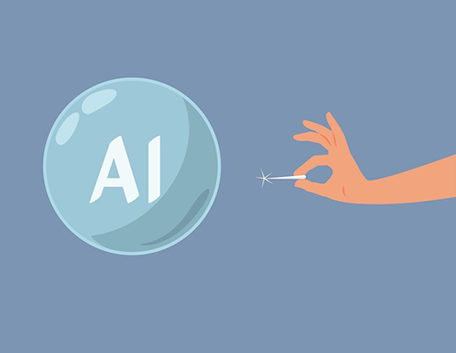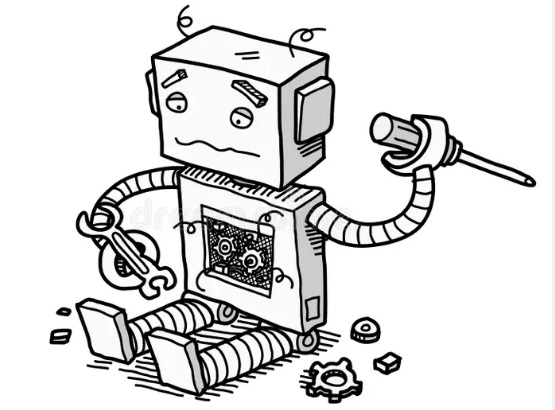Ideas are the currency of the product manager with the responsibility to broadcast a backlog of ideas that have the highest value potential. The intent of this article is to expose the reader to the Discovery Process and the opportunities Artificial Intelligence (AI) can offer a product manager.
The Product Discovery process is a strategic approach to identifying and defining the most valuable, relevant, and viable product features or services before committing to full-scale development. It emphasizes collaboration and continuous feedback from real users. The primary goal is to mitigate risks, reduce waste, and ensure that development efforts align with actual customer needs, competitive pressures, and market demand before committing extensive resources.
The process applies techniques well suited to AI capabilities such as User Journey Mapping, Predictive Analysis, and Idea Clustering. The product manager must quickly apply these and similar techniques to prioritize ideas that have the best chance of delivering value and continue to do so at a sustainable and improvable pace. If you’re not accelerating your Discovery process already, you’re falling behind your competition. Artificial intelligence will give you the capability to more rapidly evaluate new ideas.
The complex and analytical nature of Discovery can be a distraction from the primary responsibility of maintaining an ordered backlog of ideas. The focus must be on idea value and not on solution costs. The product manager needs to give each idea the minimum required attention to rank it against all other ideas. Discovery velocity is measured in evaluations per week and in the health of the backlog. Can you envision how artificial intelligence can help you with your Discovery process?
If you share this view of Product Discovery you’ll see that it's all about quickly triaging each idea's relative priority. Doing so will require the collection of relevant data as each item moves in the workflow. Quickly rejecting most and ordering the remaining best ideas in the backlog. The Discovery process ensures that when the team moves into full development they do so with confidence, clarity, and a problem to solve that's truly aligned with market needs. This is a key responsibility of product management - to maximize the value of the solution development team.
Discovery values both speed and precision, striving to work faster than competitors in a growing world of data. What’s the next item up for engineering development? You can find it at the top of your Discovery backlog. The increasing complexity and volume of data and rapidly changing markets is driving increased collaboration of human expertise and artificial intelligence. The blend of unique human problem-solving and AI lightning-fast data mapping capabilities ensures a more evidence-based approach, aligning development with genuine user needs and trends in both technologies and markets.
AI Benefits Product Discovery
It's not about replacing human judgment but enhancing it with data-driven insights for superior product outcomes. AI in Product Discovery will increase the capacity of product managers so they can shift-left and incorporate new practices such as Data Driven Decision Making and Hypothesis Driven Design. A cursory list of opportunities for AI & product management collaboration would include:
- Stakeholder Interviews and Feedback Analysis: AI's ability to process vast amounts of data quickly means that feedback from numerous stakeholders can be analyzed in real-time. Traditional manual methods might miss subtle patterns or themes in feedback, but with NLP tools, AI can identify common concerns, sentiments, or requirements that might otherwise go unnoticed.
- Market Analysis: The digital landscape is vast. AI can rapidly aggregate and analyze data from a myriad of sources, ensuring that a company is always updated with real-time trends, competitor strategies, and shifting customer preferences. This speed and thoroughness in analysis saves time and provides more comprehensive insights.
- User Behavior Analysis: AI can continually and impartially analyze user behavior, identifying patterns that might not be immediately evident. This helps in optimizing products to better meet user needs and predict future behaviors.
- User Journey Mapping: With AI's data processing capabilities, creating user journey maps becomes more accurate. AI can pinpoint exact areas in the user journey that need attention, helping to enhance user experience.
- Predictive Analysis: Predicting the future impacts of changes is crucial for product success. AI can use historical data to forecast outcomes, allowing teams to make informed decisions about feature development and changes.
- Content Analysis: Especially in content-heavy projects, AI can sift through large amounts of content, quickly identifying areas of improvement, relevance, or even content gaps that need addressing.
- Sentiment Analysis: Understanding public sentiment can greatly influence product direction. AI can consistently monitor and evaluate sentiments across platforms, ensuring that the product aligns with public perception and needs.
- Idea Clustering: In brainstorming, having an AI tool that can instantly cluster ideas ensures that sessions are more productive. It reduces redundancy and promotes focus on distinct and valuable themes.
- Persona Development: Detailed and accurate user personas drive product personalization. AI's ability to analyze diverse data means that personas created are more reflective of the actual user base.
- Visual Recognition in Design: In design-centric products, AI can identify and suggest trending design elements, ensuring that products are always aesthetically current and appealing.
- Accessibility Analysis: Accessibility is vital. AI tools can quickly evaluate if designs or features are compliant with accessibility standards, ensuring inclusivity for all users.
Conclusion
Evolution of the Product Discovery process is essential to keep pace with advancements driven by data and continuous feedback. Artificial intelligence is playing an increasingly vital role in refining this approach, enhancing human judgment with predictive analytics, qualitative insights, and data-driven recommendations. By integrating AI into the Discovery phase, product managers and teams can identify the most compelling opportunities, forecast potential challenges, and stay ahead of market trends. This collaboration not only expedites the validation of ideas but also ensures that products are tailored to customer needs and market expectations.
Henry Pozzetta is an Agile Coach with extensive experience in software engineering and product management. His goal is to accelerate the delivery of value from product management with progressive adoption of agile best practices and lean servant leadership principles.







